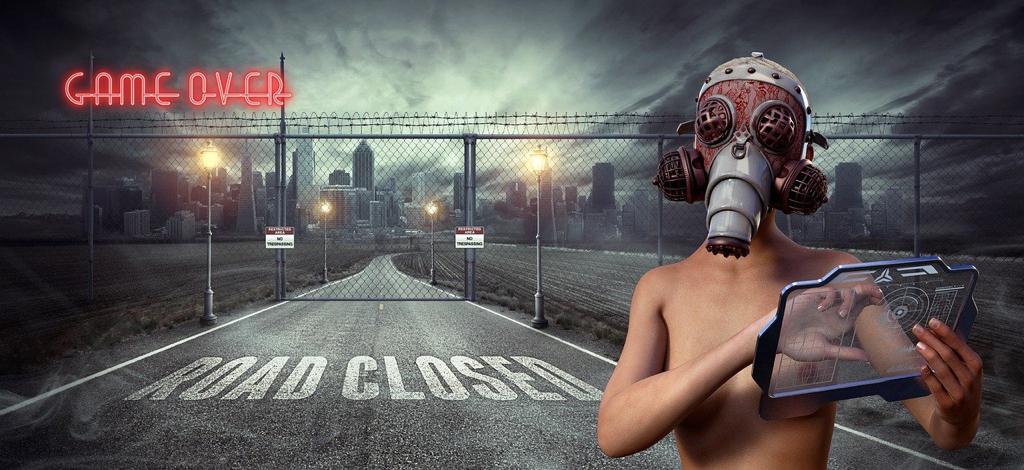Covid-19 has changed our lives. This includes the change in the Manufacturing Industry during COVID19. In this article, we will discuss how the crisis caused by the COVID-19 pandemic will affect the global economy and the financial scenario in 2020 and beyond. Further in this article we will analyze the cases study from specific developing countries including Egypt and Iran and Eu-industries .
By Zahra Kamali, Cademix Institute of Technology.
Introduction
It is vital for the industry to recover from COVID-19 by studying the virus’s impact on the supply chain and investigating possible reaction scenarios. To begin, this paper examines the immediate effects of the coronavirus’s worldwide spread. For instance, this includes the disruptions in raw material and spare part production, unmet market demands due to logistics delays, increased risk of bankruptcy for Small and Medium-Sized Enterprises (SMEs), and increased demand fluctuation. In the following section, we look at the COVID-19 aftershock. We further mention governments who recommend two-step countermeasures to aid the industry’s recovery during the pandemic. Also, we review methods to better prepare the supply chain for the post-COVID-19 environment based on the trend of regionalization and digitization.
The Impact of COVID-19 on the Manufacturing Sector
The strong effects of COVID-19 are quite evident in important economic sectors and in the unemployment rate. Manufacturing, construction, wholesale and retail, and transportation are all industries that employ people, covering more than half of each country’s workforce. As a result, the activities of these sectors have been significantly reduced and have created many problems for employees, families and their dependents, especially those working in non-governmental occupations such as seasonal, temporary, and uninsured workers.
A realistic view of the future environment predicts that thousands of employees in the private sector will lose their jobs and that the recession will have a significant social and economic impact. For the reader, we highly recommend the following reference and article by Richard Baldwin and Beatrice Weder di Mauro. COVID-19 has also had a major impact on the manufacturing sector of all countries. In this regard, the crisis forced all manufacturing sectors, except some food and medical industries, to reduce production.
Exports of all countries are affected by this recession, because of the decline in international trade and travel restrictions in almost all countries. In this regard, most countries were unable to maintain their export growth rates. This is because they are responding to this global crisis by reducing working hours, placing workers on temporary missions, and laying off unnecessary staff. In the following section of the article we focus on the specific results of the three region, Egypt and Iran and European Union.

Manufacturing Industry during COVID19 in EU
COVID-19 has a significant and unanticipated influence on the Eurozone manufacturing industry. The effect was specifically important in European Union zone, as the member states were not prepared for a border block and Lock down. Further the borders were controlled by various regulation caused in a chaos in the early months of pandemic.
As a result, the manufacturing Purchasing Managers Index (PMI) reached its lowest and sharpest point in March and April of 2020. The PMI is an index indicating the direction of economic trends in service and manufacturing sectors. The PMI described whether the market condition is expanding, contracting or staying the same. For instance, in France and Germany, the Eurozone’s two largest economies, the index decreased by a historic 14.8 points between February and April, going from 33.7 to 33.7. However, in comparison to the global economy, the euro-zone suffered more in 2020.
First Year of COVID Pandemic
During the first year of COVID , the researchers were very optimistic that the crisis would be over by 2022. Real GDP was expected to recover to pre-crisis levels in both the EU and the euro zone by mid-2022, which it not yet the case. This reflects a positive shift in the outlook as compared to the initial projections following the outbreak. There are significant performance discrepancies between and within various industrial sectors. The internet and healthcare industries have done particularly well. After the crisis, capable industries such as chemicals, construction, and the food and beverage sector are expecting to return in a V-shaped pattern.
Despite the first shocks, it appears that the automotive and textile industries are rebounding from the initial quarantines and lock downs. The cultural and creative industries, as well as the aerospace industry (due to fewer transportation and tourism activities), suffered significant impact shocks from the crisis. Most probably, they will continue to suffer for an extended period of time. The pandemic has accelerated the digitization process and online technologies as a result of these unforeseen shocks.
Manufacturing Industry during COVID19 in Iran
The Covid-19 outbreak has impacted practically every country in the world, causing a wave of infection and death in most countries, while also affecting their economic outcomes. However, the economic ramifications for Iran, which is also subject to US sanctions, are far more severe and complicated. The main reason includes:
- inadequate health system readiness,
- delays in quarantine and social distancing,
- a lack of health instructions,
- a lack of personal protective equipment and disinfectants,
- a delay in initiating necessary research activities,
- unnecessary road disinfection,
- unknown mechanisms of transmission,
- poor ventilation of hospitals,
- a lack of attention to reduced contact,
- parallel work in the development of health instructions,
- improper management of corpses,
- and a lack of personal protective equipment and disinfectants.
Corona destructive effects on Iran
The Covid-19 has damaged practically every sector of the economy, resulting in a 9 to 14 percentage point drop in industry GDP in the first and second months, which was difficult to reverse in a few months.
The outbreak of coronavirus has affected many of the economic sectors, such as tourism, foreign trade, capital markets, foreign exchange markets, housing markets, small businesses, public businesses, commodity prices. The GDP Production and value added of the entire Iranian economy have decreased by about 4.3% and 4%, respectively. We have also observed major impacts on other sectors, including tourism, international trade, finance markets, foreign exchange markets, housing markets, small and large enterprises, commodity prices.
Despite advances in medical technology, it is critical to prioritize primary health care services. We can primarily focus on environmental health, as a fundamental strategy of the health system in combating disease spread. To effectively deal with the long-term presence of the coronavirus, policymakers must have taken comprehensive preventive and sustainable practical measures. Such measures includes providing and developing environmental health infrastructure and financial ease have been suggested by the expert, however they have not been implemented.

COVID-19 in the Egypt: Advancing Digitization of Procedures in Manufacturing Industry
The Egyptian economy is significantly reliant on tourism as one of its primary sources of revenue. In the previous before the 2011 revolution, five years leading up to 1998, the country’s annual tourism revenue was around one billion dollars. Furthermore, data on various employment and revenue sources from this industry show that it employs over 10 million people. As a result, tourist business has reported more than $2 billion in revenue in just two months. The impact of the corona virus on Egyptian women and families is another concern that has arisen during the pandemic. Women account for 42% of doctors and 73% of medical workers and nurses in Egypt. Women were seriously hurt as a result of this during this time. The Egyptian government has been discussing and proposing steps to alleviate the effects of this period since the beginning.
Also, the COVID19 and its consequences had a negative impact on the rate of production growth and its share of GDP in 2018, which were 4.7 and 16.2 percent, respectively.
To address the negative impacts of COVID-19 on the economy and industry, the Egyptian government’s policy included the following set of ideas for attaining a new industrial model and using digital technology. Most of these should have been already the state of the art in developing countries.
The Egyptian government’s policy includes:
- Industrial IoT: Due to social distancing, factories demand on IoT in Egypt have potential to grow to make actuators sensors functioning and communicating separately with every other element in the production process. Industry technicians could benefit from augmented reality and simulation for remote technical help and training.
- 3D printing: Application 3D printing for rapidly deliver oxygen valves to patients. E-commerce allows Egyptian manufacturers to extend their demand and access new consumers
- Augment reality: Remote technical help and training for industry workers could be made easier with augmented reality and simulations.
- E-commerce: E-commerce allows country producers to increase demand, reach new markets, and advertise their products
- Big data analytics: Companies may be able to better organize their marketing efforts. Also understand and adapt their
- Cloud computing: Remote systems that can be accessed over the internet from any location have a lot of potential.
- Digitized supply chain: It will help manufacturers become fully connected with customers and suppliers, as well as develop blockchain technology. The Egypt’s government is introducing stringent measures to mitigate COVID-19’s effects on the manufacturing sector.
To the best of our knowledge, the Egyptian Government could not reach any of the above mentioned high tech goals, and the basic supply chain is still a daily challenge for the people.
Conclusion
The manufacturing industry underwent numerous changes throughout the COVID period. Some industries had to change their production lines to match the rapid increase in demand for certain items. Some manufacturing firms have also seen a sharp decline in demand. As a result, one of Corona’s effect on them has been the systematic bankruptcies. Consider all countries in the same light. Additionally, the changes of the Manufacturing Industry during COVID19 has caused global economic harm. Also, all governments must take considerable steps to prepare for similar pandemic and possibly future crises.

About the Author
Zahra Kamali is a professional Food-tech Entrepreneur with Bachelor Degree in Cooking. And Bakery from the Iran University of Applied Science. She has about 15 years of experience as a professional Chef. And Registered and Licensed Healthy Food Manufacturer in Iran (Has the mark I.R.l.FDO/Health code151245). She is a entrepreneur and founder of the Trademark “Menipest”, founded in Mashhad, Iran. Her target groups were the rural areas in Baluchistan/Iran (away from City and Villages). Her first article is about Rural Entrepreneurship . Other article comes out of her your personal experience in the field of SDG – Personal Experience . Her third article, entitled Comparing Industrial Machinery Manufacturing Iran and Germany’s Food Processing. She is also a member of Cademix Career Autopilot program – the acceleration program, and open to new opportunities. Please feel free to contact her:
📧zahra.kamali2346@gmail.com
📲+989910216816
http://www.linkedin.com/in/zahra-kamali-605680223
Keyword Related to Manufacturing Industry during COVID19
COVID-19, Environmental health, Epidemics, Iran.COVID-19, Digital technologies,so, Supply chain and operations, management. Essential products and services, Sustainable development , Coronavirus, covid-19, Epidemic, pandemic, omicron, green, corona, virus, pathology. Vaccine, panic, danger, mask, industry, meanwhile, people, mouth guard, organism, illustration. manufacture, information, digital, Manufacturing Industry during COVID19

